We’ve all been morphing our homes into our personal HealthQuarters since the start of the coronavirus era. Millions of global health citizens have taken to telehealth who never used a health care “digital front door” before. Other patients adopted remote health monitoring to avoid perennial visits to doctors for managing chronic conditions like diabetes or heart disease.
From the kitchen to the bedroom, our homes have become our health hubs. And now, to the bathroom and specifically, the toilet. Withings, maker of my personally favorite connected weight scale, announced U-Scan, a direct-to-consumer lab test platform that analyzes our urine from the POT – the point-of-toilet.
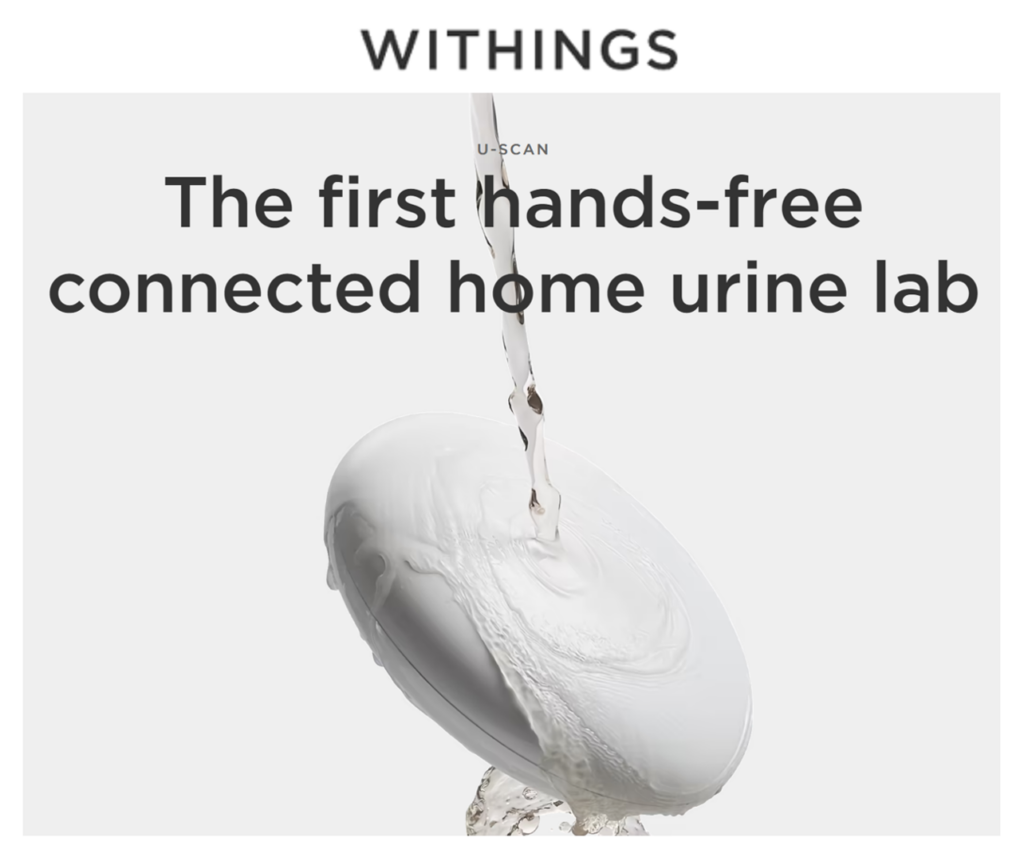
I’m not being cheeky (sorry again, just too tempted) here — I’ve extolled the promise and virtues of our bathrooms as health destinations for many years, meeting up with tech and home innovators at CES over the past decade+, and keeping track of toilet innovations especially emerging from Asia.
In the U-Scan launch press release, Withings describes the innovation as a “breakthrough in-home biomarker analysis platform that hygienically sits within any toilet bowl.”
Withings’ research found that we urinate about seven times a day, but only test our urine, on average, once a year. Thus the program, “unlocks the wealth of health data in daily urine,” the press release notes.
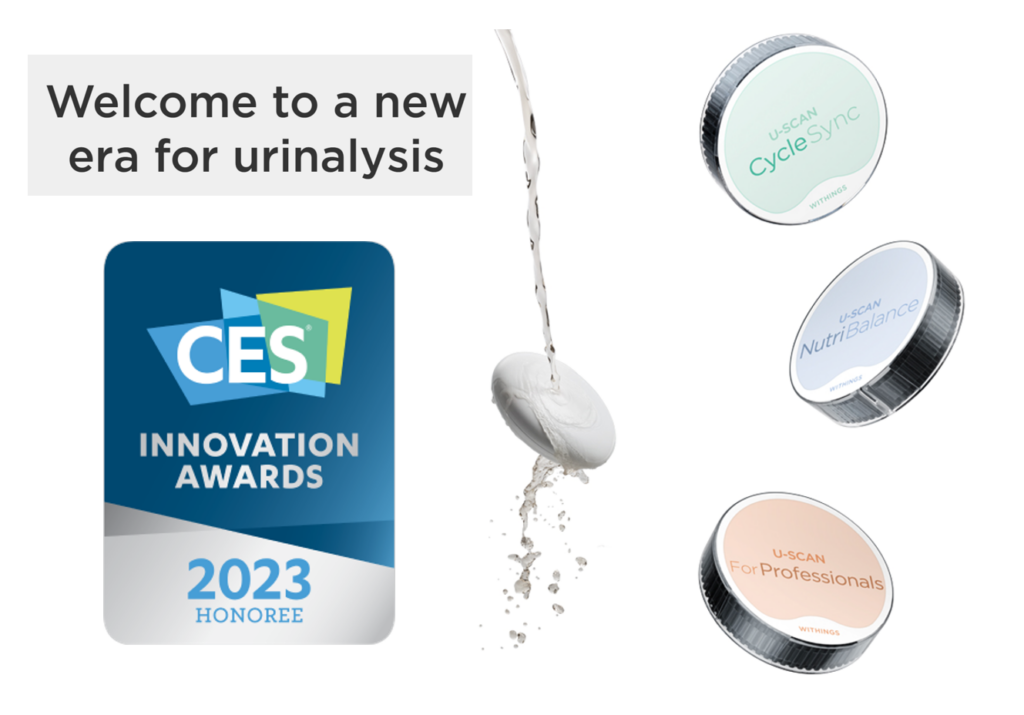
The product earned honors for a prestigious 2023 CES Innovation Award, recognized by reviewers as a front-runner in digital health tech at this year’s conference.
Withings has received similar kudos at previous CES shows: last year, for the Body Scan weight scale (recognized by TIME magazine as one of the best inventions of the year), and back in 2015 for the Activité watch and the Home HD camera embedded with environmental sensors.
In 2022, Withings had seen over 1 million new devices installed.
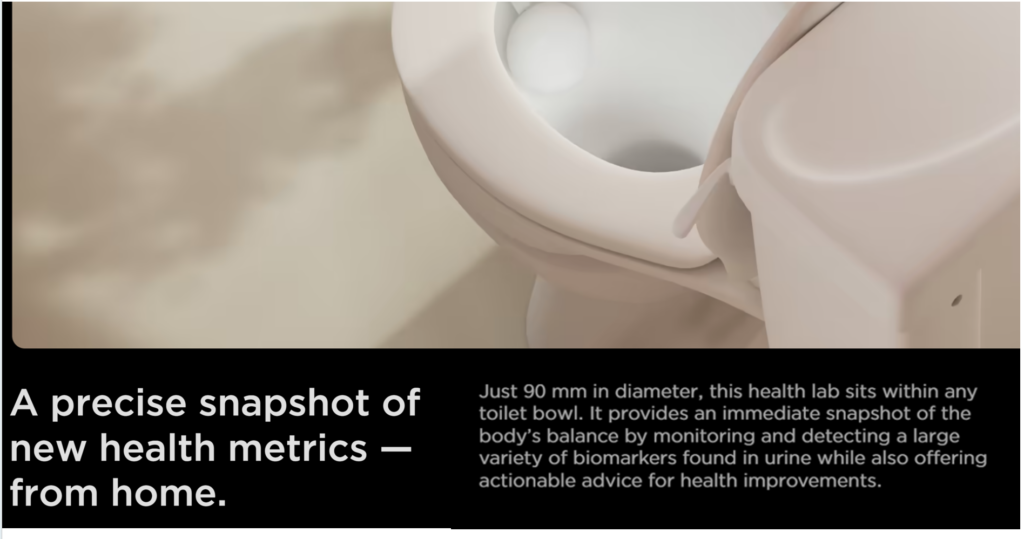
This year, U-Scan gets even more intimate than that Home HD camera did, entering the bathroom of the home. In this “new era of urinalysis,” U-Scan offers a hands-free urine lab enabled through a reader and cartridge that can be installed in any home toilet — see it here in the photo at the front of the bowl.
At launch, there are two clinical applications available: Nutri Balance addressing metabolic nutrition and hydration health, and Cycle Sync for women’s monthly cycle tracking.
It’s “Easy as 1, 2 Pee,” Withings asserts in the press release. Once the consumer urinates in the toilet, the U-scan reader funnels the urine through the pump which begins the sample’s “fluidic journey.” The sample is tested in a pod inside the device, able to distinguish between users. Once analyzed, the resulting data are transmitted via Wi-Fi to the Withings app for the user’s health tracking. The app also delivers actionable advice — for diet, exercise, ovulation prediction, and other metrics.
Some important features to note that will be important to health consumers:
- The system has a battery life of 3 months
- The platform incorporates Privacy-by-Design principles (which I explain here in Health Populi)
- The system will offer other clinical applications via cartridge innovations in the future
- The launch will be sometime in the second quarter of 2023 beginning in Europe; the U.S. launch date to be determined based on FDA clearance timing
- The European launch price will be €499 (about $530 at today’s Euro exchange rate to $US) with the U-Scan reader and one cartridge for 3 months of testing included; additional cartridges will be offered by subscription or one-off purchase.
Learn more from the FAQ and feature details on the U-Scan website. And check out this video to hear more about the evolution of Withings’ connected health products and the clinical background on the U-Scan platform.
Health Populi’s Hot Points: Meet Professor Marie Courbebaisse, a nephrologist with the Georges Pompidou European Hospital in Paris.
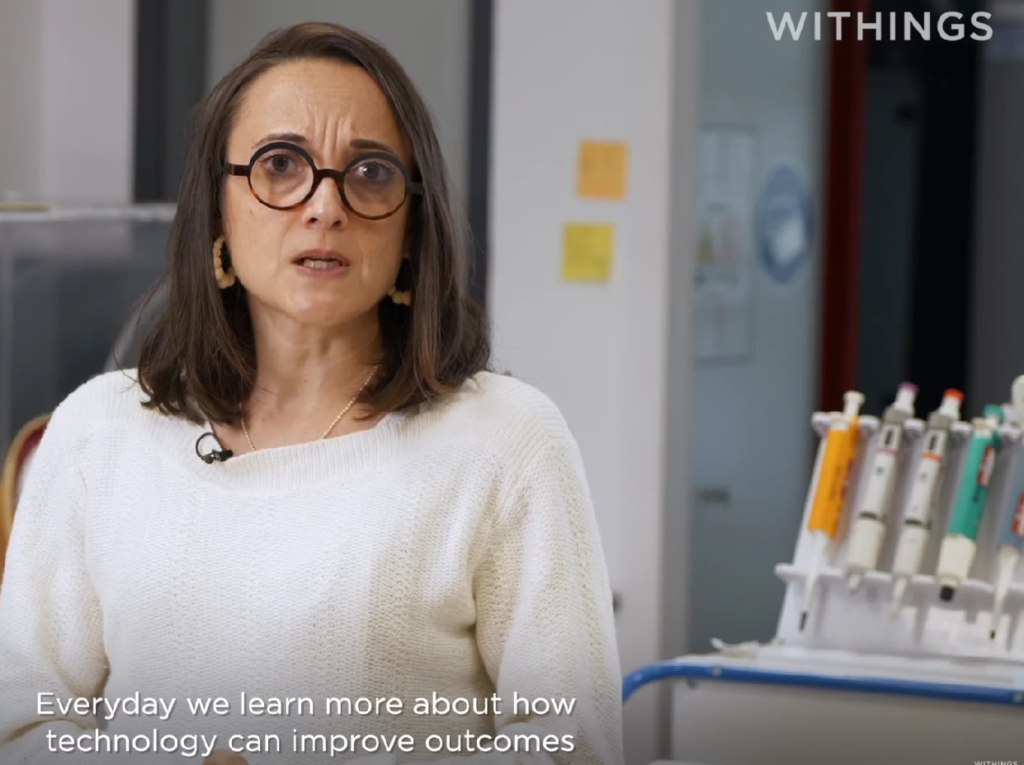
The doctor is collaborating with Withings on research into kidney stone monitoring and management by consumers. She tells us in the video, “Being able to monitor specific urine biomarkers regularly and easily at home is a breakthrough innovation that opens exciting fields for nephrology research and patient outcomes. People suffering from lithiasis will be able to better self-monitor their condition and limit the occurrence of relapses.”
Prof. Courbebaisse recognizes that, “Everyday, we learn more about how technology can improve outcomes.”
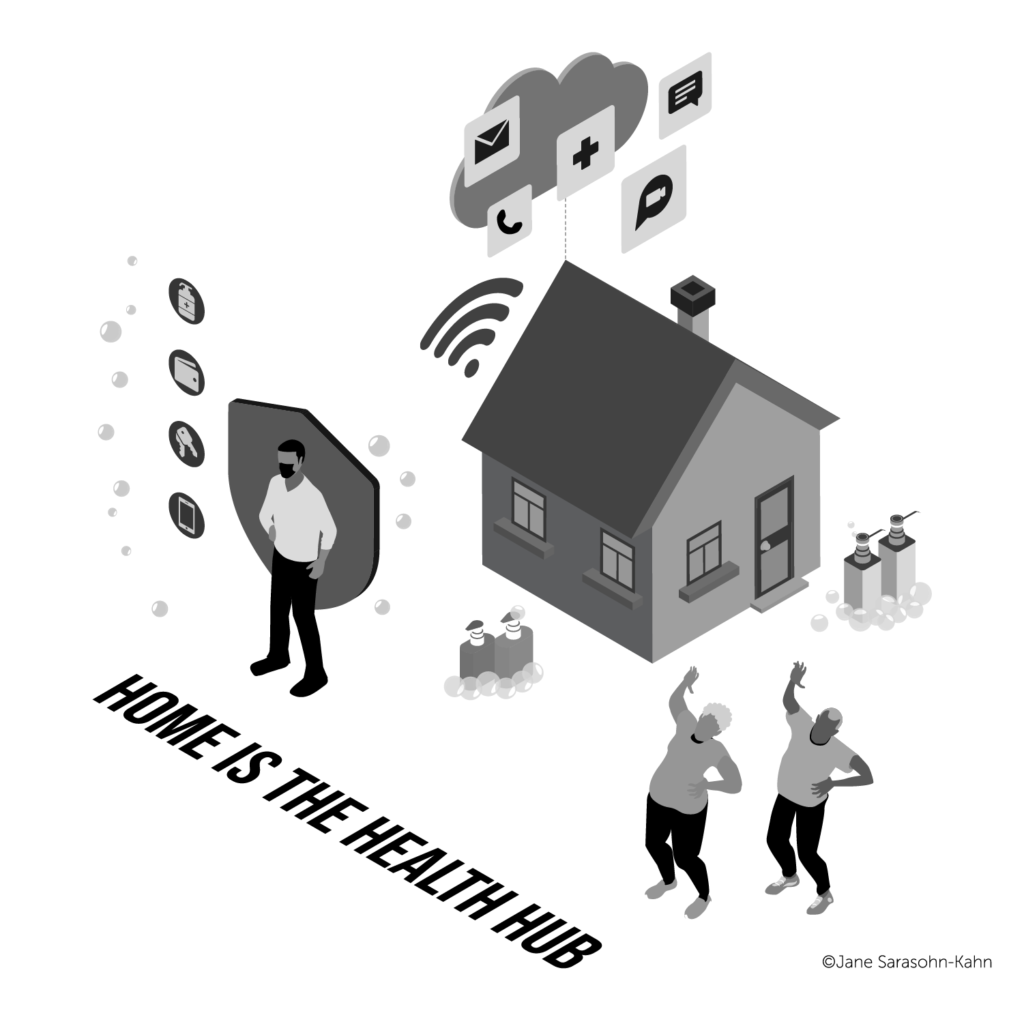
Our homes are morphing into our personal HealthQuarters for bolstering our well-being and prevention as well as for managing diagnosed conditions.
COVID-19 accelerated this trend, which is enabled through our smartphones, broadband connections, sensors and the IoT of medical and healthy things, and interoperability increasingly made real through APIs and the Matter standard (tagline: “the Foundation for Connected Things”) which is getting lots of attention at #CES2023.
These Connected Things Matter for our health. Increasingly, people as health consumers — paying more out of pocket for health care and demanding immediate, closer-to or at-home convenience — are adapting to and adopting self-care beyond vitamins, minerals, and supplement consumption.
Thanks to Withings and others in evolving DTC lab test ecosystem — such as EverlyWell, the Cologuard test (from Exact Sciences), Let’s Get Checked, WellnessFX, Color Genomics, DirectLabs, and of course, 23andMe and Ancestry et. al. — we can add even more sophisticated and empowering clinical lab capabilities to our HealthQuarters self-care portfolio.